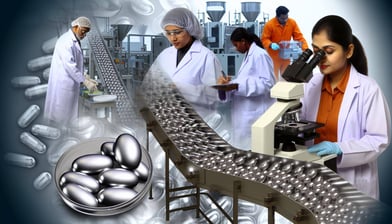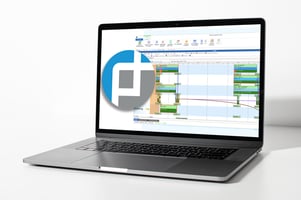Quality Assurance
The pursuit of quality assurance isn't just a regulatory necessity; it's a fundamental pillar supporting patient safety and business success in pharmaceutical manufacturing. Plant managers in pharmaceutical manufacturing facilities shoulder the responsibility of ensuring that every product leaving their facilities meets stringent quality standards.
In this blog, we'll look into the intricacies of quality assurance in pharmaceutical processes, highlighting its significance, challenges, and the role of integrated systems like PlanetTogether in conjunction with ERP, SCM, and MES platforms like SAP, Oracle, Microsoft, Kinaxis, and Aveva.

The Importance of Quality Assurance
Quality assurance (QA) is the systematic process of ensuring that products meet specified requirements and standards. In pharmaceutical manufacturing, QA is paramount due to the critical nature of the products involved. The consequences of subpar quality can range from compromised patient health to regulatory penalties and damage to brand reputation. Therefore, plant managers must adopt a comprehensive approach to QA that encompasses every stage of the manufacturing process, from raw material procurement to product distribution.

Challenges in Pharmaceutical QA
Pharmaceutical manufacturing presents unique challenges that demand sophisticated QA measures:
Regulatory Compliance: The pharmaceutical industry is heavily regulated by authorities like the FDA and EMA, with stringent guidelines governing every aspect of manufacturing. Compliance with regulations such as Good Manufacturing Practices (GMP) and Current Good Manufacturing Practice (cGMP) is non-negotiable, requiring meticulous documentation and adherence to strict protocols.
Product Complexity: Pharmaceutical products often involve intricate formulations and sensitive ingredients. Ensuring consistency and uniformity across batches is challenging, particularly when dealing with complex processes like sterile manufacturing or biologics production.
Supply Chain Complexity: Pharmaceutical supply chains are multifaceted, involving numerous stakeholders and intricate logistics. Managing suppliers, maintaining traceability, and mitigating the risk of counterfeit or substandard materials are constant challenges for plant managers.
Data Integrity: Accurate data is the cornerstone of effective QA. However, disparate systems, manual data entry, and siloed information can compromise data integrity, leading to errors and compliance issues.

Integration Solutions for Enhanced QA
To address these challenges, pharmaceutical manufacturers are turning to integrated solutions that streamline processes, enhance visibility, and ensure compliance. Integration between advanced planning and scheduling (APS) systems like PlanetTogether and ERP, SCM, and MES platforms offers a holistic approach to QA management:
Seamless Data Flow: Integration enables seamless data exchange between different systems, eliminating manual data entry and reducing the risk of errors. Real-time synchronization ensures that all stakeholders have access to accurate, up-to-date information.
Enhanced Planning and Scheduling: APS systems like PlanetTogether optimize production schedules based on various factors, including resource availability, demand forecasts, and regulatory requirements. By integrating with ERP and MES systems, plant managers can ensure that schedules align with production capabilities and compliance obligations.
Traceability and Compliance: Integrated systems facilitate end-to-end traceability, enabling plant managers to track materials, processes, and products throughout the manufacturing lifecycle. Automated documentation and audit trails ensure compliance with regulatory standards, simplifying inspections and audits.
Quality Management: Integrated QA modules within MES platforms enable comprehensive quality management, encompassing inspections, testing, and deviation management. By linking QA data with production records, plant managers can identify trends, root causes, and areas for improvement.
Continuous Improvement: Integration fosters a culture of continuous improvement by providing actionable insights into performance metrics, quality trends, and process efficiency. By analyzing data from across the manufacturing ecosystem, plant managers can identify opportunities to optimize processes and enhance product quality.
Quality assurance is a critical aspect of pharmaceutical manufacturing, requiring a proactive approach to compliance, consistency, and continuous improvement. Integrated systems like PlanetTogether, in conjunction with ERP, SCM, and MES platforms, offer a comprehensive solution to QA management, enabling plant managers to optimize processes, enhance visibility, and ensure compliance with regulatory standards.
By embracing integration, pharmaceutical manufacturers can uphold the highest standards of quality while driving operational excellence and business success. Are you ready to take your manufacturing operations to the next level? Contact us today to learn more about how PlanetTogether can help you achieve your goals and drive success in your industry.























LEAVE A COMMENT